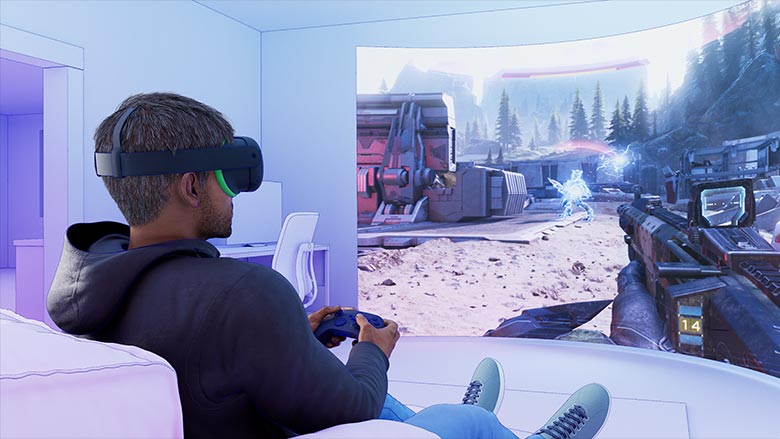Is virtual reality like Internet in the ’90s?
When reading virtual reality enthusiasts thoughts, there is one thing that always comes out: VR is like smartphones when the first iPhone came out, VR is like internet in the 90s… a super disruptive technology, a gold mine, a place full of opportunities, something that will surely skyrocket. I’m a VR enthusiast too and I surely agree that VR will succed (in 2019) and that it is a place full of opportunities. But honestly I don’t like that comparisons that much and I think we’ve still to be a bit careful. I’ll show you why.
First of all the reason is that I’ve already seen some amazing technologies to fail: clear examples are Segway, 3D TV and especially Google Glasses. The fact that a technology is amazing, has potential and initial traction doesn’t always mean a long term success. Google Glasses were something in which we of Immotionar truly believed in and into which we focused our initial efforts. Forecasts for its sales were awesome as you can see from this report of Business Insider of 2014: there should be 10 million Google Glasses out there now… while actually the project has failed.

Google Glasses were expensive and buggy and we all thought that this was normal for a new technology… but in the end, iteration after iteration they could become cheap and fantastic and everyone would have a Glass at home. As you can see, these are exactly the same things we’re saying about VR. So, we have to be cautious about each new technology that comes out and that seems promising.
There is no clear way to detect if something will succeed or not: surely some indicators may help, but in the end is like playing poker. You may be a professional player and maximizing your chances of winning thanks to some maths and your experience, but if one day you have bad luck, you just lose all your money. Making a good tech is fundamental, but sometimes there are side-effects you hadn’t thought about and that could ruin your market. About Google Glasses example, the fact that people wearing Glasses on the street were called “Glassholes” and sometimes were not allowed to enter inside shops hasn’t surely helped this device reputation. This randomness is something well know on the web… and this is why I still don’t get why Pikotaro has become so famous with his Apple-pen video…
So, I want to say that VR has great chances of succeeding, but we’re not still 100% sure, we have to be careful.
And then we come to the web. The comparison between VR and the web in my opinion is absolutely wrong. Reason is: internet has been a bigger innovation than VR. I mean, the internet enabled us to exchange informations between people of every part of the world. This is enormous. Sharing information in an easy way is fundamental for almost everything involving more than one person. Research centers could exchange their data; people could communicate immediately through e-mails instead of sending slow traditional letters; students could have access to an infinite encyclopedia that was the web.
Internet also created freedom, since was a communication mean that had no control. For the first time, people were able to express their ideas in an independent way. I’m just a random italian developer, but I’m able to talk directly to you people thanks to this blog. If there was no internet, to do this I should be featured on TV, radio or newspapers and this is terribly hard. Internet offered a complete freedom of opinion, without control. Internet offered also privacy, so we could start talking in forums protected behind our funny nicknames.
Internet helped in reducing a lots of costs. Emails are free, while traditional mails require stamps. Illegal programs like Napster let me download music for free (I know, it was wrong… but we all did it….). It also enabled new ways of earning money, offering new business opportunities, like e-commerce.

I don’t see similar innovations in virtual reality. Talking about the recently announced cheap virtual reality headsets, Microsoft told that it wants to make the VR headsets completely plug-and-play with Windows 10, as it were just particular types of screen. And yes, we can say that in the end, this is what VR just is: a new and ultra-innovative type of screen that makes you see virtual content in an immersive way. And VR controllers are like an evolution of current PC input devices, like the mouse (in fact I did a comparison between the mouse and the headset remotes).
In my opinion, virtual reality is like an awesome evolution of PCs. New generation PCs, where we are no more detached from the virtuality, but we’re completely fused with it: we have the screen just attached to our eyes and the controllers that are fused with our hands. In the long term, more senses (haptic, smell, taste) will be added to make the simulation more realistic. This is incredible, but present enormous advantages like the ones proposed above.
For example, I recently talked with VRPorn founder and he too sees porn as a driver for VR, as porn has been a driver for the web. But porn was important for the web because it:
- Was cheaper (free porn everywhere, instead of buying porn VHS for a lot of money);
- Was variate (access to bazillion porn videos against some VHS owned at home);
- Enabled privacy (I had not to go to some sexy shops in person to buy the sexy tapes, I could stay at home and get it anonymously);
- Was more accessible (just few click and I could start a video);
VR doesn’t offer the same advantages. At the contrary, at the moment it also makes things worse: free videos are very few, VR devices are quite expensive (unless you use Cardboards, but their quality is terrible), usability is harder and privacy is the same. So, again, I can’t get the comparison.
I know, the VR ecosystem is still unripe and we have to get how it will be exploited, so the comparison is a bit unfair… we’ll have to wait for the ecosystem to grow, to more “killer apps” to come out before judging. In the porn example, surely with time free quality content will come out. The problem is that from using VR I have not the same impression of an enormous leap for humanity that I had when I connected to the web for the first time.
There are three things that in my opinion hold well in the comparison:
- Internet and VR are both awesome technologies;
- Internet and VR are both technological revolutions;
- Internet and VR both enable us to access the world from our home. Internet is powerful because it lets me stay sit at my desk and communicate with the whole world, it is like having the world in my office. VR offers something similar: with VR I can stay sit and be teleported in every place of the world… and even more. With Steam VR Home I’ve been on Mars, for instance. Both are like open doors towards new universes.

Virtual Reality offers something awesome and that is the presence, the ability to feel as someone else that stays somewhere else. It lets us teleport away and that is its strength, its disruptive ability, the thing for which I think that VR will succeed. In porn, VR makes you feel really inside the scene and this is something that no other tech can offer. We can feel like being with other people with social VR programs and this is something that empowers communication a lot and also helps in cutting costs for companies (remote work collaborations, remote meetings, training, etc…). VR can create empathy and this is awesome for arts and movies. VR is a fantastic technology and this presence magic is the one that has to convince people to buy VR headsets.
But honestly I continue seeing it as a game-changing evolution of PCs, not a disruptive technology for the mankind. And this is one of the various reasons why adoption is going slower than expected: people don’t get what it is useful for. Everyone wants to try a VR headset, but few invest money to buy one of them in the end. Most of companies are still trying to understand how to use this technology in a useful way. And that’s why there is all this panic about “VR is a fad” thing.
That’s why I don’t like the comparison of VR with the WWW. To me is like comparing the invention of the car with the one of the MP3 readers. Boths are great inventions, both have sold a lot… but the first one regards something we must absolutely have and the other one something that we’d better have. I can imagine a future without widespread VR, but can’t imagine a good one without Internet.
And the funny part is that at the contrary lots of futuristic movies of the past had forecasted virtual and augmented reality, but very few of them had managed to imagine the power of the web, the power of being all connected each other. Internet has also been a surprise. And it has helped VR too, since this VR renaissance has born thanks to Kickstarter, which is a web-product.
I agree with enthusiasm on VR (otherwise I wouldn’t have this blog!), I agree it will succeed, but don’t agree on the comparison. And you? What do you think? Do you think I’m biased because internet is a mature tech while VR is just in its infancy? Let me know your opinion in the comments or on social media!
Disclaimer: this blog contains advertisement and affiliate links to sustain itself. If you click on an affiliate link, I'll be very happy because I'll earn a small commission on your purchase. You can find my boring full disclosure here.




I was in university when the internet really started to take off (mid to late 90’s), there was a lot of talk about how it would change everything we do, how email was going to revolutionise communication and how web pages would be the new entertainment/shopping medium. But it took a very long time to really come about. Looking back it wasn’t until the mid to late 00’s that all the promises of what the internet could be really came about.
I was an early adopter of smart phones (I was using a windows smartphone at least 5 years before the first iPhone came out), at the time there was a fantastic amount of spin over mobile gaming, lots of investment lots of startups but very little good content or hardware. The mobile gaming industry was almost at the point of collapse when the first iPhone came out and it revolutionised and reinvigorated that section of game and app development.
I see lots of similarities now with VR, and in a way all the current negativity is a reasureance to me that it is going in the right direction. Nothing is easy, and to introduce a new way for people to consume and interact with an expanded form of digital entertainment is extreamly hard. For anyone who is a regular VR user it is clear that VR already offers so much of an advancement over existing computer interaction.
Yeah, I’m a VR believer too! I wrote this post to tell people to keep the feet on the ground and stopping making hyper-realistic projections. Step by step, let’s make this technology become pervasive in our life.
By the way, it has been awesome to read how you went through all these technological revolutions!